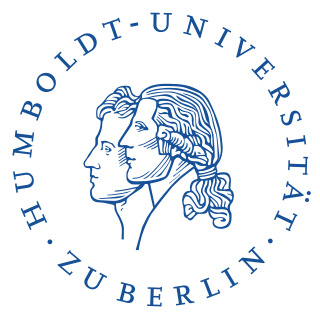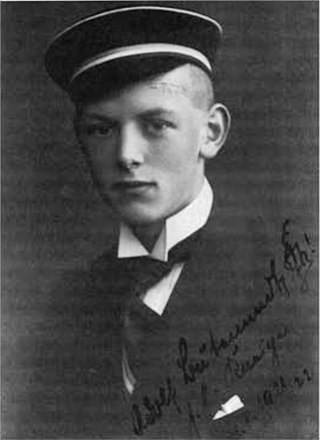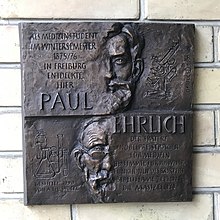
Otto Heinrich Warburg, son of physicist Emil Warburg, was a German physiologist, medical doctor, and Nobel laureate. He served as an officer in the elite Uhlan during the First World War, and was awarded the Iron Cross for bravery. He was the sole recipient of the Nobel Prize in Physiology or Medicine in 1931. In total, he was nominated for the award 47 times over the course of his career.

The Humboldt University of Berlin is a public research university in the central borough of Mitte in Berlin, Germany.

Fritz Albert Lipmann was a German-American biochemist and a co-discoverer in 1945 of coenzyme A. For this, together with other research on coenzyme A, he was awarded the Nobel Prize in Physiology or Medicine in 1953.

Heinrich Otto Wieland was a German chemist. He won the 1927 Nobel Prize in Chemistry for his research into the bile acids.

The University of Strasbourg is a public research university located in Strasbourg, France, with over 52,000 students and 3,300 researchers. Founded in the 16th century by Jean Sturm, it was an intellectual hotbed during the Age of Enlightenment.

Adolf Friedrich Johann Butenandt was a German biochemist. He was awarded the Nobel Prize in Chemistry in 1939 for his "work on sex hormones." He initially rejected the award in accordance with government policy, but accepted it in 1949 after World War II. He was President of the Max Planck Society from 1960 to 1972. He was also the first, in 1959, to discover the structure of the sex pheromone of silkworms, which he named bombykol.

Hans Fischer was a German organic chemist and the recipient of the 1930 Nobel Prize for Chemistry "for his researches into the constitution of haemin and chlorophyll and especially for his synthesis of haemin."

The Charité – Universitätsmedizin Berlin is Europe's largest university hospital, affiliated with Humboldt University and the Free University of Berlin.
The "Manifesto of the Ninety-Three" is a 4 October 1914 proclamation by 93 prominent Germans supporting Germany in the start of World War I. The Manifesto galvanized support for the war throughout German schools and universities, but many foreign intellectuals were outraged. For instance, some military actions by Germany were called elsewhere the Rape of Belgium.
Events in the year 1884 in Germany.

Bekenntnis der Professoren an den Universitäten und Hochschulen zu Adolf Hitler und dem nationalsozialistischen Staat officially translated into English as the Vow of allegiance of the Professors of the German Universities and High-Schools to Adolf Hitler and the National Socialistic State was a document presented on 11 November 1933 at the Albert Hall in Leipzig. It had statements in German, English, Italian, and Spanish by selected German academics and included an appendix of signatories. The purge to remove academics and civil servants with Jewish ancestry began with a law being passed on 7 April 1933. This document was signed by those that remained in support of Nazi Germany.
Events from the year 1843 in Germany.










